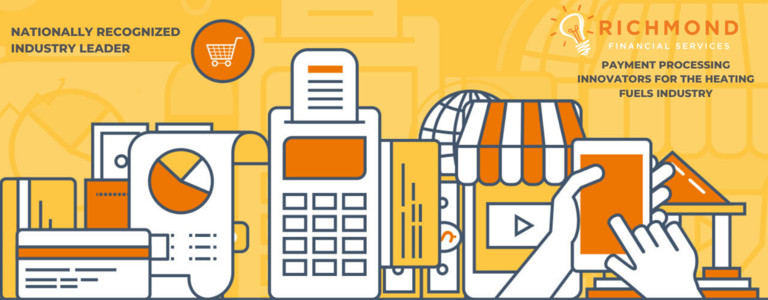Small business owners may be reluctant to give up older payment techniques that aren’t streamlined or paperless because that’s what they’re familiar with. Although it’s easier to stick to what you know and put off upgrading your payment technology, doing so is detrimental to the long-term longevity and profitability of small to medium-sized businesses.
 Many SMBs imagine a more streamlined and cashless future but are unsure how to achieve that, so they need personalized guidance. Out of 2,250 small and micro-businesses and 1,500 consumers, more than a third (35%) of business owners surveyed said they are considering accepting new forms of payment to improve their business, according to a recent VISA survey. That’s where my personalized payment processing consulting plans come in — I create a strategy that’s specific to your needs and honors the economic changes we’re seeing in the home heating and fuels industry. Follow these three tips when it comes to adapting to new payment technology:
Many SMBs imagine a more streamlined and cashless future but are unsure how to achieve that, so they need personalized guidance. Out of 2,250 small and micro-businesses and 1,500 consumers, more than a third (35%) of business owners surveyed said they are considering accepting new forms of payment to improve their business, according to a recent VISA survey. That’s where my personalized payment processing consulting plans come in — I create a strategy that’s specific to your needs and honors the economic changes we’re seeing in the home heating and fuels industry. Follow these three tips when it comes to adapting to new payment technology:
1. Be open to new Fintech
The idea of adopting Fintech is daunting to business owners at first because there’s an initial upfront investment, but it’s necessary to help increase the long-term profitability of your business.
One of the most popular solutions business owners in the B2B space invest in is digital payment solutions. When business owners are able to digitally transfer money, it eliminates AP and AR problems because funds are instant and can be automatically liquidated. If you find a digital payment solution that works for your business, you’ll never have to manually handle cash or checks again.
2. Understand your internal team might change
When you adopt new technology for your business, it’s possible you won’t need some members of your internal team because their jobs become completely automated. While this is a painful realization, it’s common and a necessary part of developing an adaptable, forward-thinking business strategy. You’ll want to keep only the strongest team members around you who can adapt to new challenges and processes.
3. Never stop learning
Payment processing technology continues to evolve, making it necessary to be open to new technology for years to come. When you’re in the mindset that knowledge is power, you never stop learning and are open to new solutions for your business.
To learn more about the latest payment processing technology, schedule a free consultation call with me by visiting my website. I can’t wait to meet with you and help you develop a payment strategy that leads to perpetual savings.








